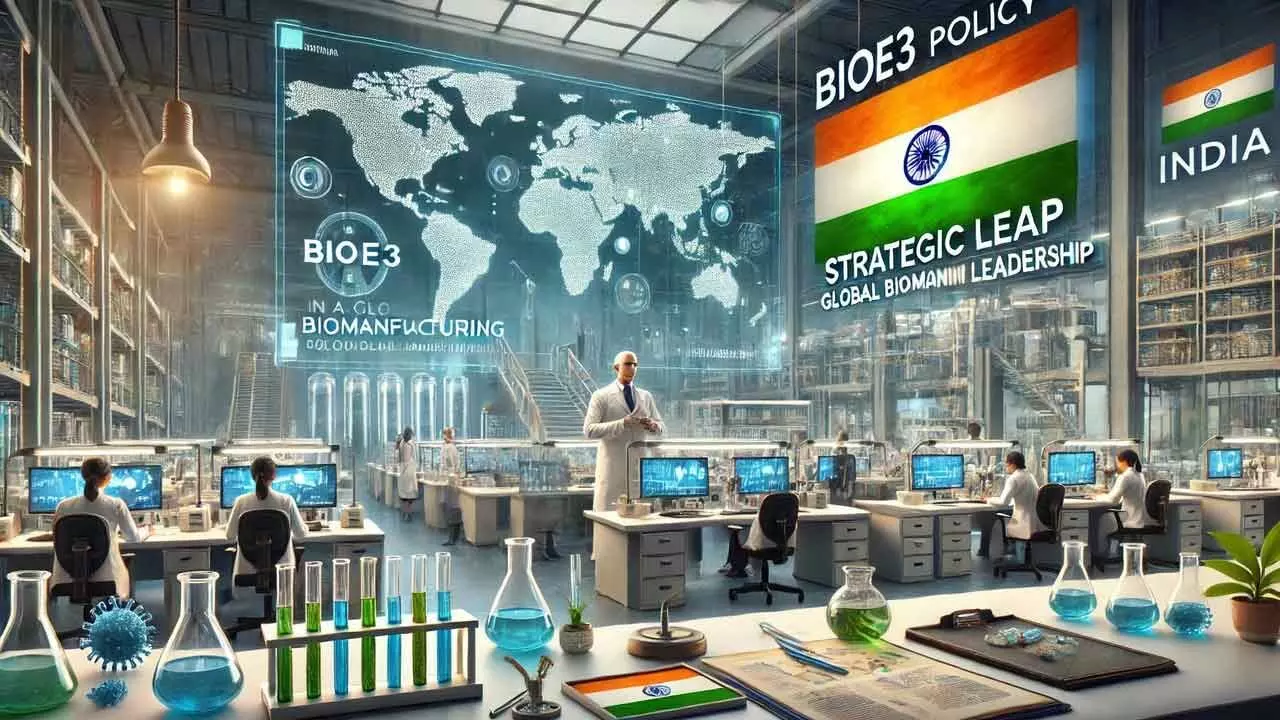BioE3-led India set for global leadership
New Bioeconomy policy will herald a transformative shift in India’s manufacturing sector: Union Minister
BioE3-led India set for global leadership

It’ll generate jobs particularly in tier-II and tier-III cities, where bio manufacturing hubs will be set up - Dr Jitendra Singh, MOS (Independent Charge) for Science and Technology
New Delhi: The new BioE3 (Biotechnology for Economy, Environment and Employment) policy is a game changer, and will place India as a global leader, said Dr Jitendra Singh, Union Minister of State (MOS-Independent Charge) for Science and Technology, on Monday.
The Union Cabinet, chaired by Prime Minister Narendra Modi, on Saturday, approved the BioE3 Policy in a bid to foster high-performance biomanufacturing of the Department of Biotechnology aimed at accelerating India’s transition to green growth and a Net Zero carbon economy.
“The new Bioeconomy policy rolled out by the Modi Govt is set to place India as a global leader in the years to come,” said Singh, while briefing the media.
The ambitious policy will herald “a transformative shift in India’s manufacturing sector”, he added, noting it will boost the economy, innovation, jobs, and environmental commitments.
The Science and Technology Minister said the policy aims to pivot from traditional consumptive practices to high-performance, regenerative biomanufacturing, marking a significant step towards a cleaner, greener, and more prosperous Bharat.
“India’s bio-economy has experienced remarkable growth, skyrocketing from $10 billion in 2014 to over $130 billion in 2024, with projections to reach $300 billion by 2030. This surge reflects India’s robust economic growth,” Singh said, adding that it will “position India as a potential leader in the 4th industrial revolution”.
“The BioE3 Policy is set to accelerate this growth trajectory, making substantial contributions to the ‘Make in India’ initiative by fostering the development of bio-based products with minimal carbon footprints,” he noted. Further, Singh noted that the policy is designed to address critical global challenges such as climate change and depleting non-renewable resources by facilitating the shift from chemical-based industries to sustainable bio-based models.

